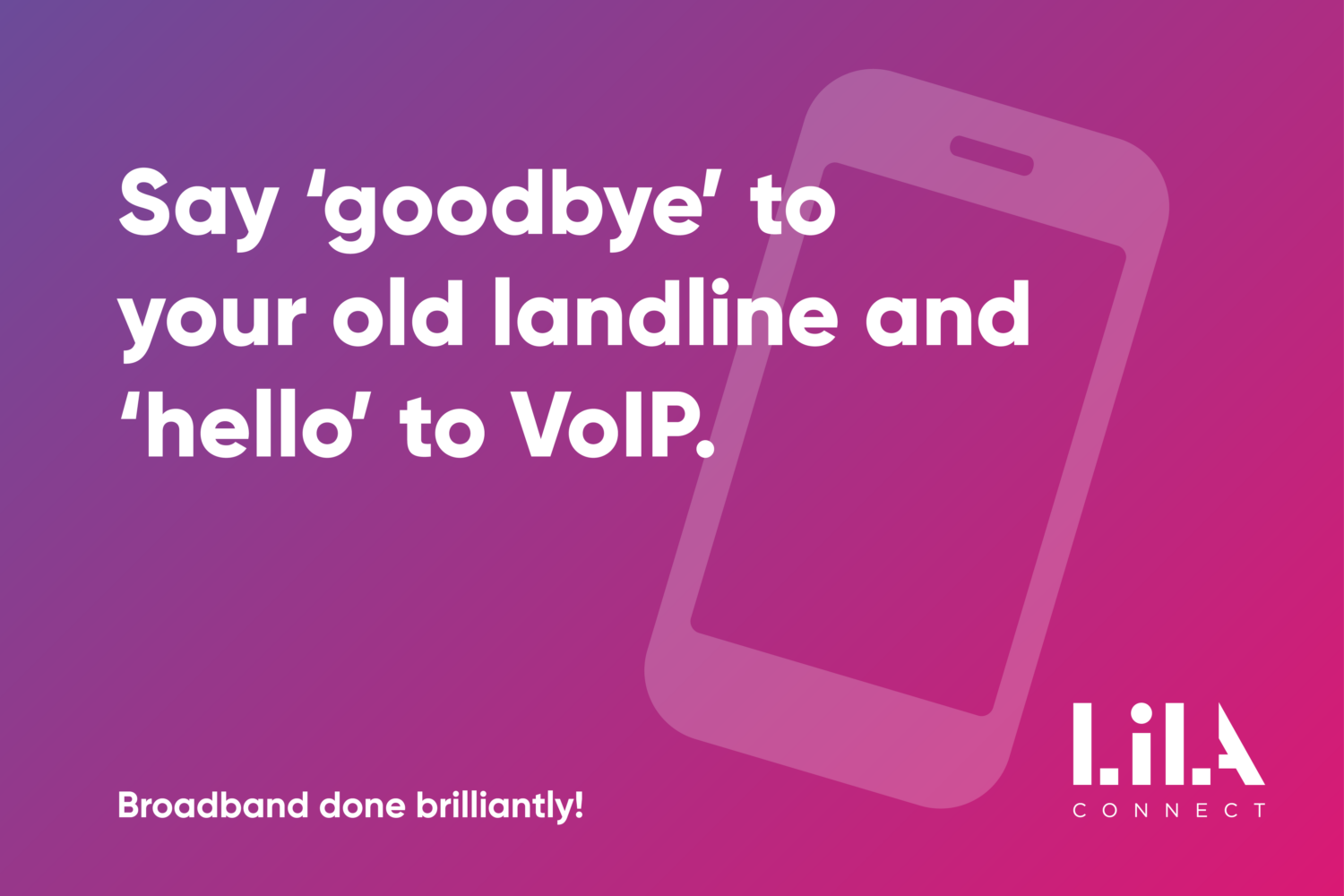The nationwide Public Switch Telephone Network (PSTN) switch off has been delayed to January 2027. It was originally planned for December this year. This decision was made to ensure everyone across the UK has plenty of time to prepare.
So why is the PSTN switch off happening?
Traditional landlines use an old copper-based infrastructure that was built by the Victorians and was once the envy of the world. The same technology delivered our broadband services into our homes, workplaces and schools. Our blog ‘Can a landline still work with full fibre?’ delves a little bit deeper into what this means.
To summarise, technology is ever-evolving and an exponential stream of digital services are being developed to enhance our lives. Parts of the existing copper network are being retired as the new fibre network is rolled out. With this comes a focus on faster, more reliable fibre technology, with less interference and degradation coupled with improved stability and performance.
As the UK moves towards this fully digital infrastructure, traditional landline services as we know them will be completely phased out. The UK will switch to Voice Over Internet Protocol (VoIP).
The most important thing to know is that your landline will not disappear. It will just get better!
Instead, your voice calls will now be transmitted via your internet connection.
You’ve most likely already used VoIP when making calls via applications such as WhatsApp and Skype.
Whether you’re using your home phone for catching up with family, running a small business, or keeping in touch with essential services, VoIP will become the norm.
Now your voice calls can reap the benefits of full fibre.
We’ve seen the positive impact access to a reliable, stable and lightning-fast gigabit full-fibre broadband connection has had on our digital lives. From streaming your favourite shows, working from home, or connecting with loved ones online.
By using the same digital infrastructure, there will be a noticeable improvement in the quality of both incoming and outgoing calls. The VoIP connection will be more reliable and the calls should be crystal clear – this is not restricted to local calls but long distance and international calls too!
Added to this, your phone number can be accessed from any handset with an internet connection – even a smartphone. This means there is no need for a separate handset and it also ensures you to make calls from wherever you are.
It doesn’t end there. VoIP offers some smart features that you wouldn’t necessarily be able to access with a traditional landline, at no extra cost. From call forwarding, voicemail transcription and auto-attendants, to conference calling, and call recording.
Perhaps most importantly. One of the key benefits of a move to VoIP is lower monthly fees. Alongside this, cheaper call rates locally, long-distance and for international calls.
We understand how important it is to keep your existing number
When switching to VoIP with LilaConnect, you can retain your current landline number without any hassle. This means no need to inform friends, family, or businesses of a new number – just a simple, seamless transition to a modern digital voice solution.
We know change can be daunting. That’s why we recommend KIT (Keep in Touch)
KIT is a third-party VoIP solution provider, and your perfect companion in this transition. With various package options, KIT is designed to keep you connected without any disruptions, and ensuring you can keep in touch with those who matter most.
Its range provides flexibility and affordability, helping you transition smoothly to a digital voice solution while keeping your trusted landline number.
The future is digital, and VoIP is here to stay. With landlines soon becoming a thing of the past, it’s time to embrace the change with a solution that’s easy, affordable, and hassle-free.
To find out more, visit the Digital Voice section on our FAQ page, or contact our friendly support team.


